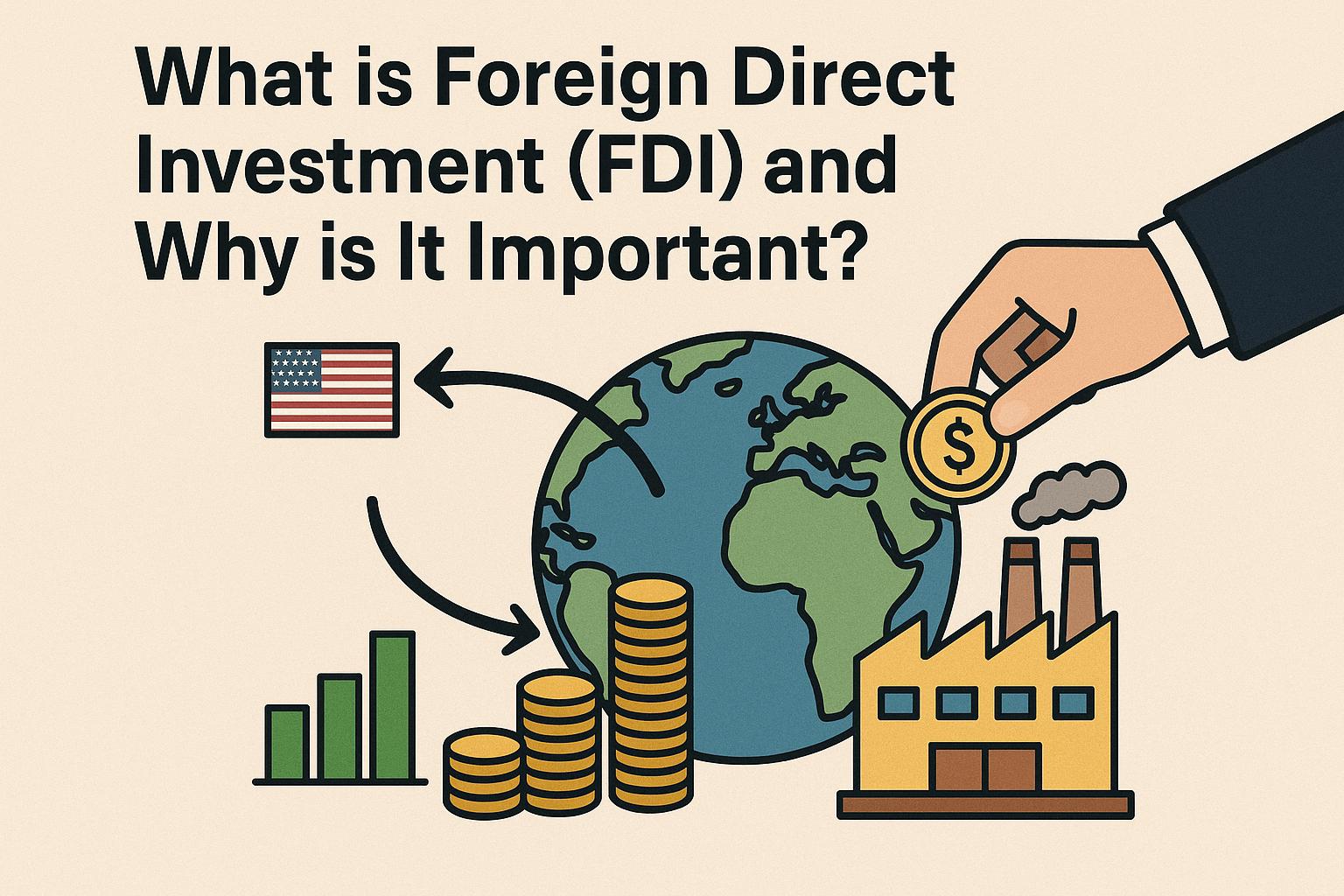What is Foreign Direct Investment (FDI) and Why is It Important?
- Written by: admin
- Category: Uncategorized
- Published: September 11, 2025

Understanding Foreign Direct Investment (FDI)
Foreign Direct Investment (FDI) refers to an investment made by a firm or individual in one country into business interests located in another country. Typically, FDI occurs when an investor establishes foreign business operations or acquires foreign business assets, including establishing ownership or controlling interest in a foreign company. This is distinguished from foreign portfolio investments, where investors only purchase equities in foreign markets. The nuances of FDI make it a critical element in international finance and economics, connecting businesses and economies at a global level. By engaging in FDI, companies can diversify their business risk, access new markets, and leverage cost efficiencies.
Mechanisms of FDI
FDI can be achieved in various ways, which include developing joint ventures, acquiring a stake in an existing foreign firm, or establishing a new venture in the host country. This process embodies the complexities and strategies businesses adopt to integrate globally. Joint ventures allow foreign companies to collaborate with local firms, utilizing local knowledge and resources, thereby minimizing risks associated with entering new markets. Acquiring stakes in existing companies enables immediate access to local markets while circumventing the challenges of starting anew. Meanwhile, establishing a new venture provides full control over operations and strategy, albeit with higher initial costs and risks.
The relationship between the parent company and the subsidiary is fundamental in FDI. The parent company directs operations, ensuring alignment with its broader business goals, while the subsidiary operates on the ground, adapting to local conditions. This dynamic plays a significant role in how businesses manage cross-border investments and adapt to diverse economic environments.
The Importance of FDI in Global Economics
FDI plays a pivotal role in the interconnectedness and interdependence of world economies. It serves as a conduit for economic growth, technological advancement, and social development across different regions. Here are some key aspects of why FDI is essential:
Economic Growth and Development: FDI contributes significantly to the GDP of host countries, particularly in developing nations where capital is often scarce. Investments stimulate industrial growth, providing the necessary infrastructure and capital to develop industries. This industrial growth, in turn, results in the creation of jobs, directly affecting the employment rate and driving the economic engine of the host country forward.
Knowledge Transfer: An often-overlooked advantage of FDI is the transfer of technology and knowledge. When multinational companies invest in a foreign market, they bring with them cutting-edge technologies and innovative practices. These advances are disseminated within the host country’s industries, elevating productivity levels and enabling local firms to climb the technological ladder. This knowledge transfer can be transformative, modernizing sectors that were previously stagnant.
Increase in Employment: By establishing new businesses or expanding existing ones, FDI creates jobs, bolstering employment opportunities in the host country. The influx of new companies increases demand for skilled and unskilled labor, which not only reduces unemployment rates but also impacts poverty levels positively, contributing to the social stability of the region.
FDI and Multi-National Enterprises (MNEs)
Multi-National Enterprises (MNEs) are cornerstone players in FDI, largely driving its growth. MNEs, through their expansive networks, bring best practices in management, technology adoption, and adherence to international environmental standards to the regions they invest in. They utilize global resources, distributing inputs and outputs across multiple locations, thereby creating efficiencies in production and reducing costs. As they operate in various countries, MNEs help integrate local firms into global supply chains, enhancing their competitiveness on a global stage.
Through FDI, MNEs also serve as channels for cultural exchange, leading to an understanding and appreciation of diverse business practices and consumer markets. This global exchange enriches both the parent and host economies, underscoring the mutual benefits of such investments.
Challenges of Foreign Direct Investment
Despite the myriad benefits it offers, FDI presents several challenges. One major concern is the potential erosion of economic sovereignty in host countries. When foreign entities acquire substantial stakes in local businesses, there is a risk of external influence over domestic policies and economic strategies. Furthermore, an over-dependence on foreign investment can lead to vulnerabilities, especially if investors choose to withdraw during economic downturns.
Moreover, while MNEs often bring higher environmental standards, they can, if unregulated, exploit a host country’s natural resources, leading to environmental degradation. This underscores the importance of robust regulatory frameworks to ensure that FDI aligns with national interests and contributes positively to the local economy and environment.
Issues related to cultural and operational differences also pose challenges. Adjusting to local customs and business etiquette can be complicated for foreign firms, and without careful navigation, these differences can lead to misunderstandings and operational disruptions.
To mitigate such risks, host countries need to establish clear policies and frameworks that encourage beneficial FDI while protecting national interests. This includes setting terms for investment limits, profit repatriation rules, and ensuring that foreign companies adhere to local laws and regulations.
For more in-depth information on Foreign Direct Investment, visit this UNCTAD resource. This site offers detailed insights into global trends and statistics on FDI.
In conclusion, FDI is a foundational element of global economic development, fostering an ecosystem of shared growth and prosperity. By strategically managing FDI policies, countries can spur sustainable development and ensure that the benefits of investment are equitably distributed among their populations. The future of FDI lies in its balanced integration into national economies, ensuring that it sustains growth while preserving economic and environmental integrity.
This article was last updated on: September 11, 2025

